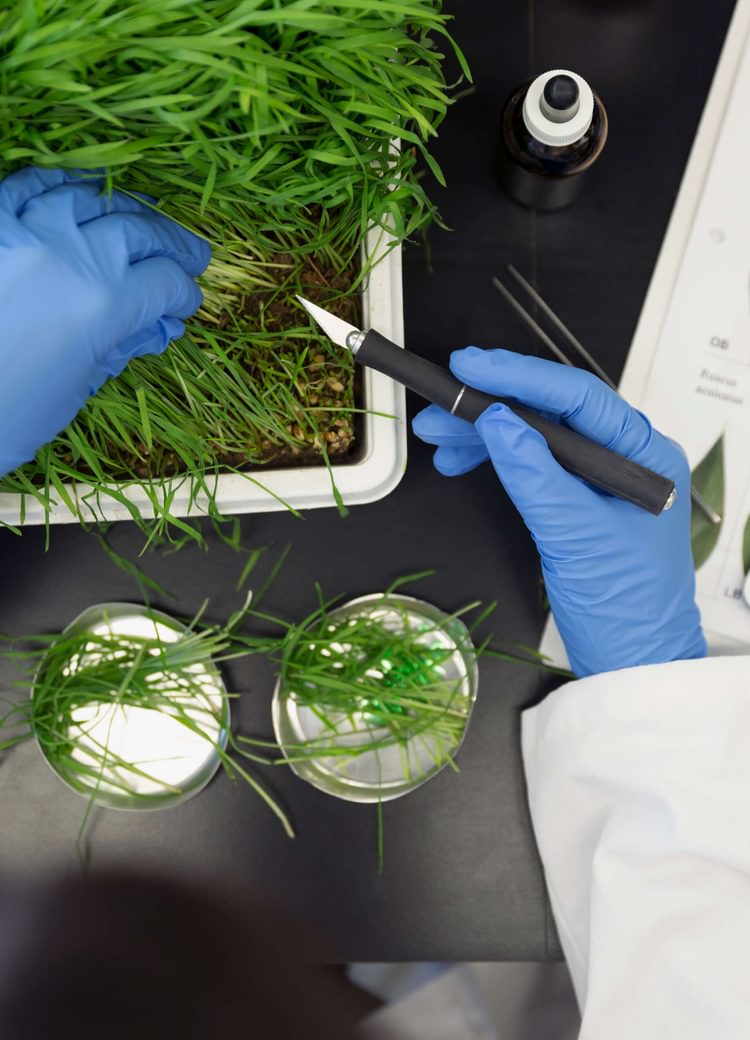
Why Choose a Biology Major with a Chemistry Emphasis at Bethel University?
The Bachelor of Science in Biology with a Chemistry Emphasis at Bethel University is ideal for students interested in the intersection of life sciences and chemical processes. This program provides a strong foundation in biological principles while offering deeper exploration of chemistry—preparing students for careers in healthcare, biotechnology, research, and beyond.
Students engage in hands-on laboratory work, scientific research, and coursework in areas such as molecular biology, organic chemistry, genetics, and biochemistry. The program emphasizes critical thinking, analytical skills, and real-world application—key components for those pursuing medical, dental, pharmacy, or graduate school, as well as roles in laboratory or environmental sciences.
Led by experienced faculty, Bethel’s small class sizes create an environment where students receive personalized instruction and mentoring. Whether you’re aiming for a professional program or a career in scientific research, this degree equips you with the academic rigor and practical experience to succeed.
At Bethel University, you’ll explore the building blocks of life—and be prepared to make a difference in science and society.
What You'll Learn
The Chemistry Emphasis within the Biology major at Bethel University provides students with a strong interdisciplinary foundation in the life and physical sciences. Ideal for students interested in research, pharmaceutical science, biotechnology, or medical fields, this emphasis integrates upper-level coursework in both biology and chemistry. Students gain hands-on laboratory experience, develop critical thinking skills, and prepare for graduate study or careers in scientific and health-related professions.
As a Biology major with a Chemistry emphasis, you will:
- Explore core concepts in biology such as genetics, cell biology, microbiology, and physiology, while integrating chemical principles essential for understanding molecular and biochemical systems.
- Complete an extensive chemistry curriculum including general, organic, and analytical chemistry to deepen your scientific knowledge and technical skills.
- Engage in laboratory experiences that emphasize precision, data analysis, and scientific communication across both biology and chemistry disciplines.
- Strengthen your problem-solving and quantitative reasoning skills through advanced coursework in calculus and physics.
- Learn to apply interdisciplinary thinking in addressing complex scientific questions relevant to biotechnology, pharmacology, and medical research.
- Prepare for entry into professional schools or graduate programs with a curriculum that aligns with expectations for careers in medicine, pharmacy, dentistry, and laboratory science.
- Participate in independent study or special topics courses that provide flexibility for research, internships, or preparation for licensure exams.
Career Possibilities
Biological Technician
Biological technicians assist biological and chemical scientists by preparing and conducting lab experiments, maintaining equipment, and collecting and analyzing data. They work in settings like research labs, biotech companies, and government agencies.
- Typical Education Requirements: Bachelor’s degree in biology, chemistry, or related science.
- Median Annual Wage (May 2024): $52,000
- Job Outlook (2023–33): 7% growth (faster than average)
Chemical Technician
Chemical technicians perform lab tests and experiments, assist chemists and engineers in analyzing materials, and help ensure quality control in manufacturing or research environments.
- Typical Education Requirements: Associate’s degree in chemistry or chemical technology; bachelor’s for advanced roles.
- Median Annual Wage: $57,790
- Job Outlook (2022–32): ~6% growth (as fast as average)
Forensic Science Technician
Description: Forensic science technicians collect and analyze physical evidence from crime scenes, such as blood, fibers, and chemical residues, and work closely with law enforcement to support criminal investigations.
Typical Education Requirements: Bachelor’s degree in chemistry, biology, or forensic science.
Median Annual Wage: $67,440
Job Outlook (2022–32): 13–16% growth (above average)
Environmental Scientist/Specialist
Description: Environmental specialists study environmental impacts, conduct field and lab research on pollutants, and advise policy or industry on compliance with environmental regulations.
Typical Education Requirements: Bachelor’s degree in environmental science, biology, or chemistry.
Median Annual Wage: $80,060
Job Outlook (2022–32): 6% growth (faster than average)

